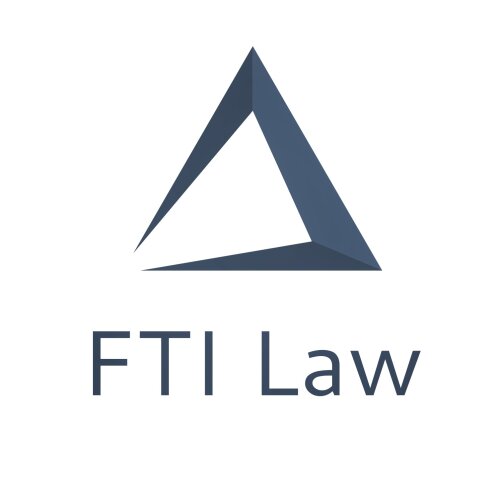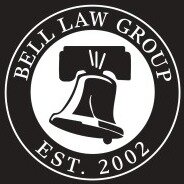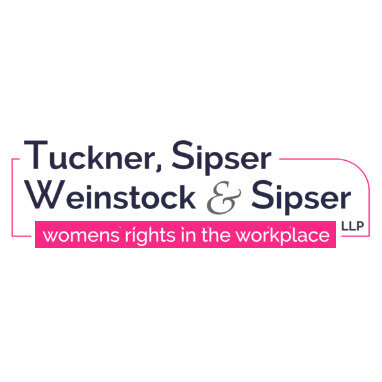Best Employment & Labor Lawyers in New York
Share your needs with us, get contacted by law firms.
Free. Takes 2 min.
Or refine your search by selecting a city:
List of the best lawyers in New York, United States
United States Employment & Labor Legal Questions answered by Lawyers
Browse our 5 legal questions about Employment & Labor in United States and read the lawyer answers, or ask your own questions for free.
- Internal investigation of sexual harassment in US
- I’m from [company removed], based in Hong Kong. One of my firm’s US employee reported to internal legal that I have sexually harassed her during my last trip to New York. An internal investigation is kicking off and I will be interviewed by firm legal. Also I have the opportunity... Read more →
-
Lawyer answer by Ascendance International Consulting (A-I-C)
This is a serious matter, and it’s important to approach it with care. Since you have the opportunity to submit a written statement to the internal committee, we strongly recommend that you take time to carefully document your side of...
Read full answer - Do I have a discrimination case
- Everything was good at work then I have an accident and cracked my spine and need surgery and off for a year. They didn’t want me back b.c I was a liability. I was getting written up all the time after I came back. Hit the 2 year mark back... Read more →
-
Lawyer answer by mohammad mehdi ghanbari
Hello, I read your post and I am sorry to hear about the difficult situation you've been through with your employer following your accident. Returning to work after such a serious injury only to face disciplinary action and termination sounds...
Read full answer - Can I still file a lawsuit?
- If I did not file an EEO in a timely manner because I was not aware. Can I still file a lawsuit?
-
Lawyer answer by Islaw - Expert Lawyers
Hi, Typically, you must file an EEO complaint with the Equal Employment Opportunity Commission (EEOC) within 180 days from the date of the discriminatory act. However, if your employer is a state or local government entity, you have 300 days...
Read full answer
United States Employment & Labor Legal Articles
Browse our 8 legal articles about Employment & Labor in United States written by expert lawyers.
- Are Non-Competes Enforceable in New York?
- Non-competes are still legal in New York and most of the United States, but courts apply strict scrutiny and often refuse to enforce broad, form agreements. Governor Hochul vetoed New York's broad non-compete ban (often referenced as S4641A / S3100A) in December 2023, so as of my last update there... Read more →
- The Clean Slate Act NY Background Checks 2026 United States
- Clean Slate laws in the United States automatically seal many low-level misdemeanors and some non-violent felonies after a crime-free period, so employers should expect background reports to show fewer records for many applicants. Employers generally may only ask about and rely on criminal convictions and pending charges that are not... Read more →
- Hiring Contractors in United States NY Freelance Isn't Free Act 2026
- In the United States, most workers are "at will," but federal and state laws strictly regulate wages, overtime, discrimination, retaliation, and union rights. Misclassifying employees as independent contractors can trigger back wages, taxes, penalties, and class actions, often costing many times the original savings. New York's Freelance Isn't Free Act,... Read more →
About Employment & Labor Law in New York, United States
Employment and labor law in New York governs the relationship between employers and employees, covering workplace rights and responsibilities, wage and hour standards, discrimination, harassment, workplace safety, and the right to organize and bargain collectively. New York is known for having some of the most employee-friendly laws in the United States, with comprehensive protections that go beyond federal mandates. Both state and local agencies actively enforce these rights to ensure fair treatment and safe workplaces across different industries.
Why You May Need a Lawyer
There are many situations when legal guidance is essential in employment and labor matters. These include being terminated or disciplined unfairly, facing workplace discrimination or harassment, experiencing wage or overtime violations, negotiating employment contracts, dealing with workplace retaliation, handling unemployment claims, or navigating complex workplace investigations. Employees and employers alike may require a lawyer to understand their rights, negotiate settlements, or represent them in claims or lawsuits. Additionally, labor unions and collective bargaining often involve complex legal considerations that benefit from professional legal advice.
Local Laws Overview
New York State has several important laws and regulations that affect employment and labor relations. Some of the key aspects include:
- New York State Human Rights Law: Prohibits discrimination and harassment based on protected characteristics such as race, gender, age, disability, sexual orientation, and more, applying to most employers in the state.
- New York Labor Law: Includes wage and hour laws, minimum wage requirements, rules about meal and rest breaks, overtime, tip credits, and wage theft protections.
- Paid Family Leave: New York’s Paid Family Leave law offers eligible employees paid time off to bond with a new child, care for a seriously ill family member, or handle certain military family needs, with job protection and continuation of health insurance.
- Earned Sick Leave: Many employees are entitled by law to accrue and use sick leave for themselves or family members.
- Worker Protection Agencies: The New York State Department of Labor and city agencies actively enforce labor and employment laws, including wage theft and workplace safety.
- Retaliation Protections: Employers may not retaliate against employees for asserting their rights under the law, such as filing complaints or participating in investigations.
- Collective Bargaining Rights: Employees have the right to organize, form unions, and bargain collectively, and employers must negotiate in good faith.
Frequently Asked Questions
What is the minimum wage in New York?
Minimum wage rates in New York vary by region and employer size. As of 2024, the minimum wage is generally $16.00 per hour in New York City, Westchester, and Long Island, and $15.00 statewide outside those areas. Some workers, such as those earning tips, may have different wage rules.
What protections exist against workplace discrimination?
Both state and federal laws protect workers from discrimination based on characteristics like race, color, national origin, sex, gender identity, religion, age, disability, sexual orientation, and others. New York State Human Rights Law often covers smaller employers that may not be covered by federal law.
Am I entitled to overtime pay?
Most employees in New York are entitled to overtime pay at a rate of one and a half times their regular rate for hours worked over 40 in a week, with some exemptions for certain administrative, executive, and professional positions.
Can my employer fire me without a reason in New York?
New York is an at-will employment state, meaning employers can terminate employees at any time, for any reason, or for no reason, as long as it is not illegal (for example, based on discrimination or retaliation).
What should I do if I experience harassment at work?
You should report the harassment to your employer through the procedures outlined in your workplace handbook or policies. You may also file a complaint with the New York State Division of Human Rights or the Equal Employment Opportunity Commission. Consulting a lawyer can help you understand your options and rights.
What rights do employees have to paid leave in New York?
Eligible employees in New York have rights to paid family leave, earned sick leave, and, in some cases, paid safe leave if affected by domestic violence. These rights are separate from any employer-provided time off.
How do I file a wage or hour complaint?
Employees who believe they have not been paid properly should first raise the issue with their employer. If the issue is not resolved, complaints can be filed with the New York State Department of Labor or in some cases with the United States Department of Labor.
Can I be retaliated against for filing a complaint?
It is illegal for an employer to retaliate against you for asserting your workplace rights, including filing a complaint or participating in an investigation. Retaliatory actions might include demotion, termination, reduction in hours, or unwarranted disciplinary action.
Do non-compete agreements apply in New York?
Non-compete agreements are enforceable in New York only if they are necessary to protect legitimate business interests, are reasonable in scope and duration, and do not impose an undue hardship. New York courts typically scrutinize such agreements carefully.
What are the rights of unionized workers?
Unionized workers have the right to collectively bargain for better terms and conditions of employment. Employers and unions must negotiate in good faith. Disputes may arise under collective bargaining agreements, which are usually resolved through grievance and arbitration processes.
Additional Resources
- New York State Department of Labor - Information on wage and hour laws, workplace safety, unemployment, and filing complaints.
- New York State Division of Human Rights - Handles discrimination and harassment complaints statewide.
- New York City Commission on Human Rights - Investigates discrimination in New York City workplaces.
- United States Department of Labor Wage and Hour Division - Enforces federal wage, hour, and labor standards.
- Equal Employment Opportunity Commission (EEOC) - Investigates and enforces federal antidiscrimination laws.
- Legal Aid Society and other local legal service providers - Offer free or low-cost legal assistance for workers.
Next Steps
If you are facing an employment or labor issue in New York, keep careful records of all employment-related documents and communications. Review your employee handbook or policies to understand your rights and obligations. For most workplace issues, it may be helpful to try to resolve disputes internally first, such as by speaking with your supervisor or human resources. If your concerns are not addressed or you are unsure of your rights, consult an experienced employment and labor lawyer who can evaluate your case and guide you on the best course of action. Many lawyers offer free consultations or work on a contingency fee basis for certain types of cases. If you cannot afford a lawyer, explore local legal aid organizations or government agencies that may be able to assist you.
Lawzana helps you find the best lawyers and law firms in New York through a curated and pre-screened list of qualified legal professionals. Our platform offers rankings and detailed profiles of attorneys and law firms, allowing you to compare based on practice areas, including Employment & Labor, experience, and client feedback.
Each profile includes a description of the firm's areas of practice, client reviews, team members and partners, year of establishment, spoken languages, office locations, contact information, social media presence, and any published articles or resources. Most firms on our platform speak English and are experienced in both local and international legal matters.
Get a quote from top-rated law firms in New York, United States — quickly, securely, and without unnecessary hassle.
Disclaimer:
The information provided on this page is for general informational purposes only and does not constitute legal advice. While we strive to ensure the accuracy and relevance of the content, legal information may change over time, and interpretations of the law can vary. You should always consult with a qualified legal professional for advice specific to your situation.
We disclaim all liability for actions taken or not taken based on the content of this page. If you believe any information is incorrect or outdated, please contact us, and we will review and update it where appropriate.
Browse employment & labor law firms by service in New York, United States
New York, United States Attorneys in related practice areas.
Browse employment & labor law firms by city in New York
Refine your search by selecting a city.
















